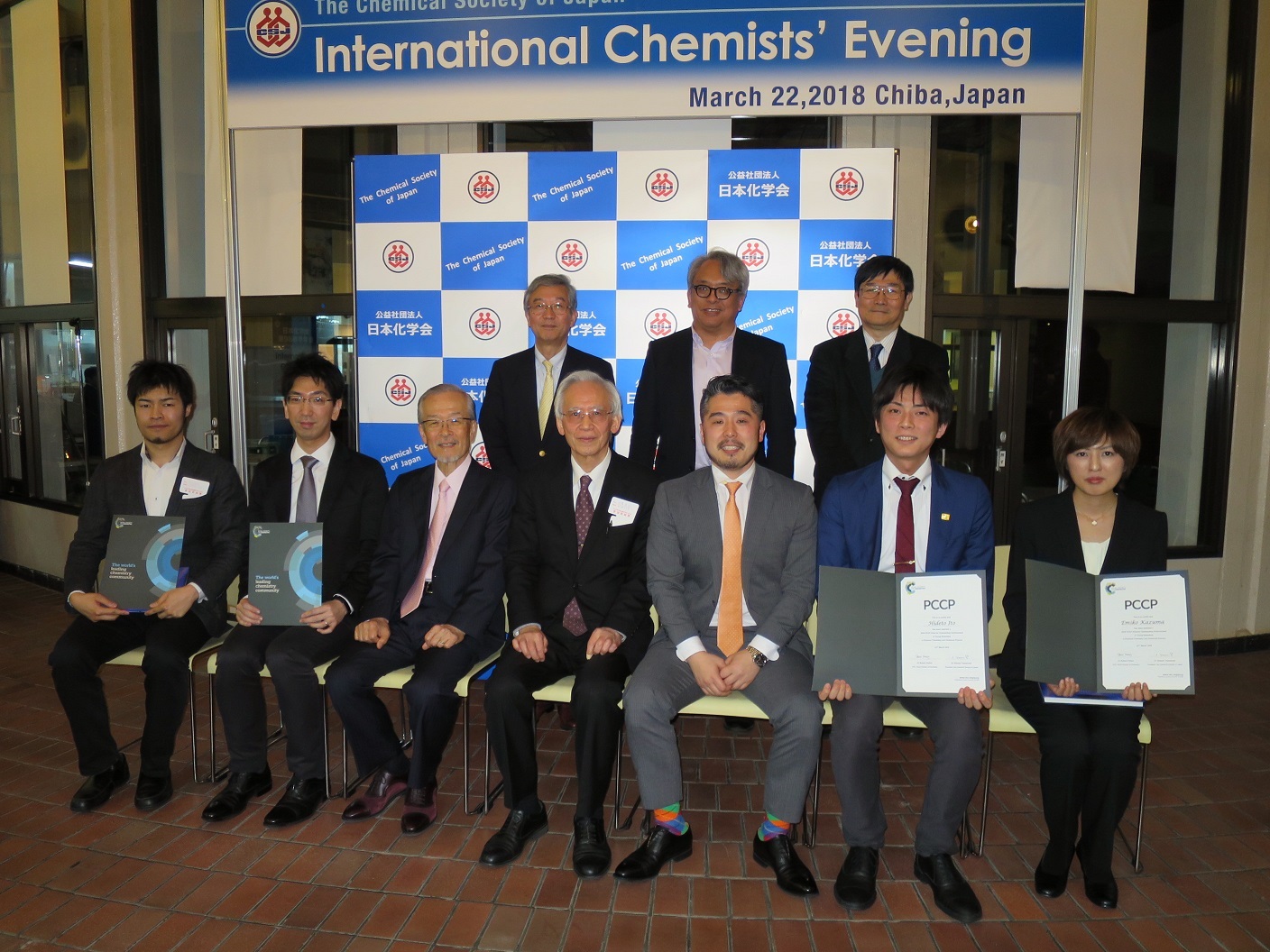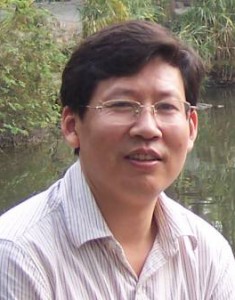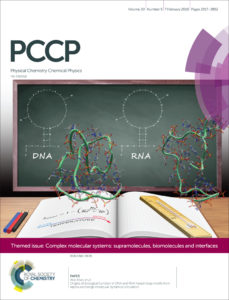The 98th Chemical Society of Japan Annual Meeting took place in Funabashi, Japan between the 20-23 March 2018. The Royal Society of Chemistry’s Hiromitsu Urakami attended the meeting and PCCP Prize Certificates for Outstanding Achievement of Young Scientists in Physical Chemistry and Chemical Physics were awarded to:
- Dr Daishi Fujita, University of Tokyo: “Geometric control of molecular self-assembly”
- Dr Hideto Ito, Nagoya University: “Development of Precise Synthetic Methodologies for 1D and 2D Nanocarbon Architectures”
- Dr Emiko Kazuma, RIKEN: “Real-time and Real-space Observation of Single-Molecule Chemical Reaction Induced by Localized Surface Plasmon”
- Dr Toshiki Sugimoto, Kyoto University: “Unveiling Emergent Properties of Strongly Correlated and Frustrated Proton System: Sum-Frequency-Generation Spectroscopy of Heteroepitaxial Water Ice “

Top row, L-R: Yoshito Watanabe (Nagoya Univ, CSJ Academic Research Activation Committee Chair), Katsuhiko Ariga (National Institute for Materials Science, PCCP Prize Selection Committee), Atsushi Nakajima (Keio Univ, PCCP Prize Selection Committee)
Bottom row, L-R: Toshiki Sugimoto, Daishi Fujita, Hisashi Yamamoto (Chubu Univ, CSJ President), Yasuhiro Iwasawa (The University of Electro-Communications, PCCP Prize selection committee chair), Hiromistu Urakami, Hideto Ito, Emiko Kazuma













 The
The 

